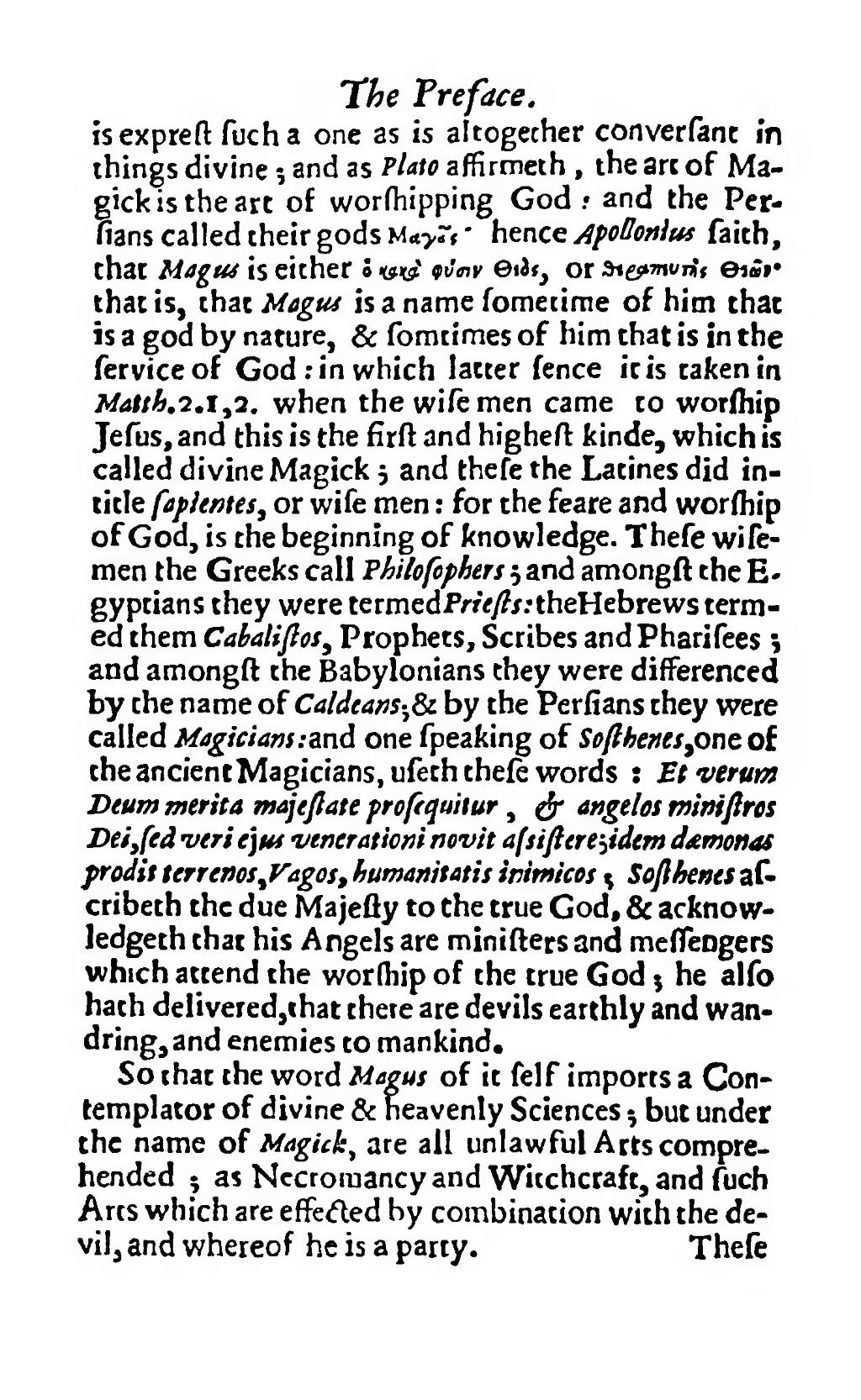is expreſt ſuch a one as is altogether converſant in things divine; and as Plato affirmeth, the art of Magick is the art of worſhipping God • and the Perſians called their gods Μαγο͂ς • hence Apollonlius ſaith, that Magus is either ὁ κατὰ φύσιν θεὸς, or θεραπευτὴς θεῶν that is, that Magus is a name ſometime of him that is a god by nature, & ſomtimes of him that is in the ſervice of God: in which latter ſence it is taken in Matth.2.1,2. when the wiſe men came to worſhip Jeſus, and this is the firſt and higheſt kinde, which is called divine Magick ; and theſe the Latines did intitle ſapientes, or wiſe men: for the feare and worſhip of God, is the beginning of knowledge. Theſe wiſemen the Greeks call Philoſophers; and amongſt the Egyptians they were termed Prieſts: the Hebrews termed them Cabaliſtos, Prophets, Scribes and Phariſees; and amongſt the Babylonians they were differenced by the name of Caldeans; & by the Perſians they were called Magicians: and one ſpeaking of Soſthenes, one of the ancient Magicians, uſeth theſe words: Et verum Deum merita majeſtate proſequitur, & angelos miniſtros Dei, ſed veri ejus venerationi novit aſsiſtere; idem dæmonas prodis terrenos, Vagos, humanitatis inimicos; Soſthenes aſcribeth the due Majeſty to the true God, & acknowledgeth that his Angels are miniſters and meſſengers which attend the worſhip of the true God; he alſo hath delivered, that there are devils earthly and wandring, and enemies to mankind.
So that the word Magus of it ſelf imports a Contemplator of divine & heavenly Sciences; but under the name of Magick, are all unlawful Arts comprehended; as Necromancy and Witchcraft, and ſuch Arts which are effected by combination with the devil, and whereof he is a party.Page:Fourth Book of Occult Philosophy, 1655.djvu/12
Jump to navigation
Jump to search
There was a problem when proofreading this page.
The Preface.
Theſe
